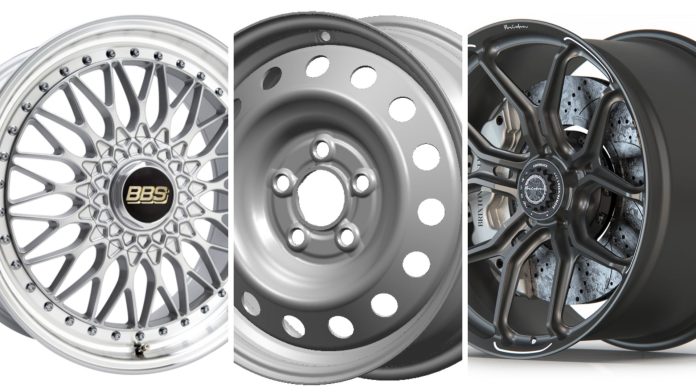Alloy wheels have become a popular choice for car enthusiasts and everyday drivers alike. Known for their stylish appearance, performance benefits, and durability, alloy wheels offer numerous advantages over traditional steel wheels. In this article, we’ll explore what alloy wheels are, their benefits, types, maintenance tips, and how to choose the right set for your vehicle.
What Are Alloy Wheels?
Alloy wheels are made from a mixture of metals, typically aluminum or magnesium, combined with other elements to enhance their properties. This blend creates a wheel that is lighter and stronger than traditional steel wheels. The manufacturing process often involves casting or forging, resulting in wheels that not only perform well but also look great.
Benefits of Alloy Wheels
- Lightweight: One of the primary advantages of alloy wheels is their reduced weight compared to steel wheels. This reduction in weight improves vehicle performance, handling, and fuel efficiency.
- Enhanced Aesthetics: Alloy wheels come in various designs and finishes, allowing car owners to customize the look of their vehicles. They can significantly enhance the visual appeal of any car.
- Improved Heat Dissipation: Alloy wheels have better thermal conductivity, which helps in dissipating heat more effectively. This can be particularly beneficial for braking performance, as it reduces the risk of brake fade.
- Corrosion Resistance: Unlike steel wheels, which can rust over time, alloy wheels are more resistant to corrosion. This makes them a durable option, especially in areas with harsh weather conditions.
- Performance Boost: The combination of lighter weight and better heat dissipation can lead to improved overall vehicle performance, including acceleration, braking, and handling.
Types of Alloy Wheels
- Cast Alloy Wheels: These are the most common type of alloy wheels. They are made by pouring molten metal into a mold. Cast alloy wheels are generally less expensive and offer a good balance between performance and cost.
- Forged Alloy Wheels: Forged wheels are made by applying high pressure to a solid block of metal, resulting in a denser and stronger wheel. They are lighter and more durable than cast alloy wheels but come at a higher price point.
- Flow Formed Alloy Wheels: This is a hybrid between casting and forging. The rim of a cast wheel is stretched and compressed to increase its strength and reduce weight. Flow-formed wheels offer a middle ground in terms of performance and cost.
Choosing the Right Alloy Wheels
When selecting alloy wheels for your vehicle, consider the following factors:
- Size: Ensure the wheels are the correct size for your vehicle. This includes the diameter, width, and offset. Incorrect sizing can affect handling and safety.
- Design and Finish: Choose a design that complements your vehicle’s style. Alloy wheels come in various finishes, including polished, painted, and machined.
- Budget: Determine your budget and weigh the benefits of different types of alloy wheels. While forged wheels offer superior performance, cast wheels are more budget-friendly.
- Brand and Quality: Opt for reputable brands known for their quality and durability. High-quality alloy wheels will provide better performance and longevity.
Maintaining Alloy Wheels
To keep your alloy wheels in top condition, follow these maintenance tips:
- Regular Cleaning: Clean your alloy wheels regularly to prevent brake dust and grime build-up. Use a mild soap and water, and avoid harsh chemicals that can damage the finish.
- Protective Coatings: Consider applying a protective coating or wax to shield the wheels from corrosion and road debris.
- Check for Damage: Inspect your wheels for any signs of cracks, bends, or other damage. Address any issues promptly to maintain safety and performance.
- Proper Installation: Ensure that alloy wheels are installed correctly, with the appropriate torque settings to avoid damage and ensure safety.
Conclusion
Alloy wheels offer a multitude of benefits, from improved performance and fuel efficiency to enhanced aesthetics and durability. Whether you’re looking to upgrade your vehicle’s appearance or boost its performance, alloy wheels are an excellent choice. By understanding the different types, choosing the right set, and maintaining them properly, you can enjoy the full advantages of alloy wheels for years to come.
















